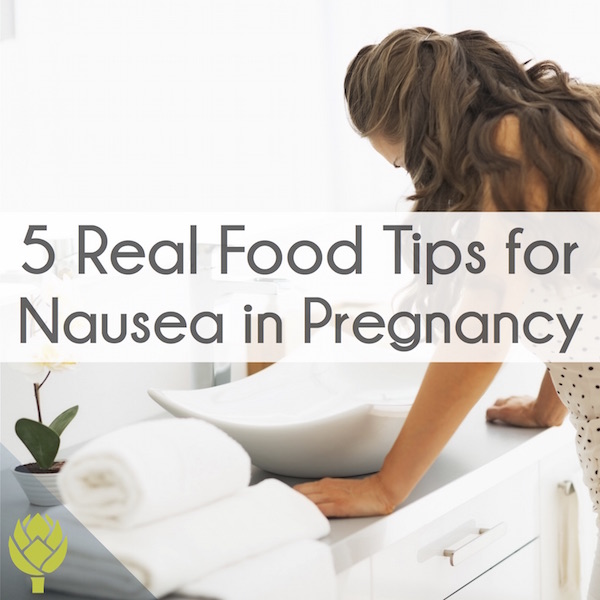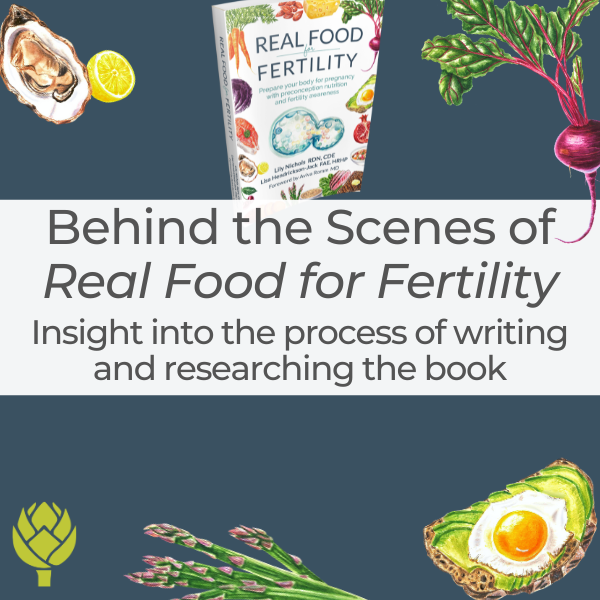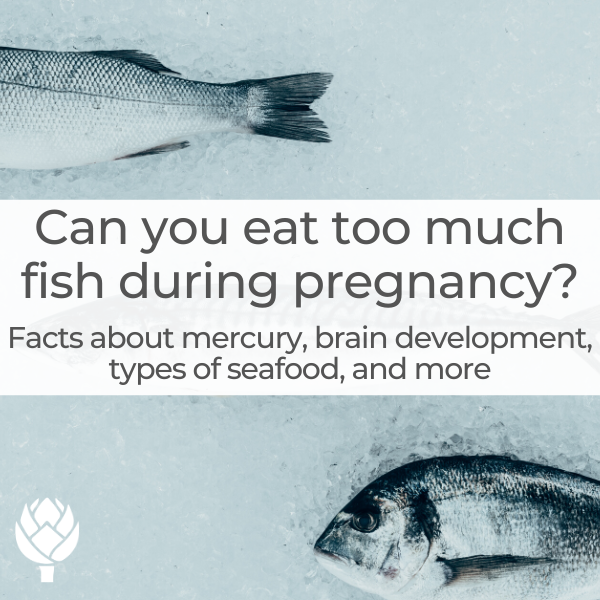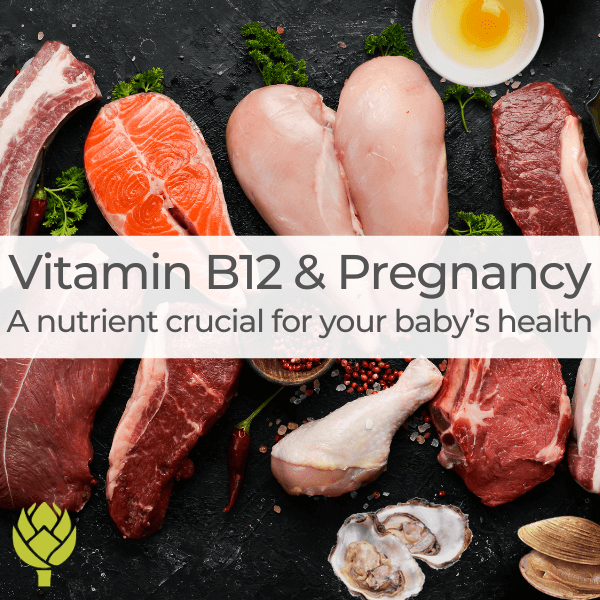Nausea during pregnancy, often termed “morning sickness,” is no joke.
Some women seem to bypass this queasy phase, while others get hit HARD. Those that avoid it entirely are the exception, however, since researchers report that 70-80% of women will experience nausea at some point in their pregnancy.
For most women, nausea hits in the first trimester and then gradually improves. Roughly ⅔ of women will notice their nausea improves significantly by 13 weeks. (For me personally, mine was less severe in the second trimester, but it took about 15-16 weeks to go away entirely. As always, we’re individuals, not statistics, so don’t feel like something is wrong if you don’t fit these numbers to a T.)
Knowing that “it will likely pass” may be reassuring, but it doesn’t make it any easier to ride it out. In one study of over 700 women, nausea “had a major impact on various aspects of the women’s lives, including global quality of life and willingness to become pregnant again.” (BMC Pregnancy and Childbirth, 2017)
That’s where some practical tips to help you get through the day-to-day come in.
I recently connected with the editors over at Motherly to share 5 real food tips for managing nausea in pregnancy. My guest post was recently published and I wanted to be sure I shared it with you.
As always, my tips come with a detailed explanation as to why they work. I’ve outlined them below. For the full explanation, head over to Motherly to read the whole post.
5 Real Food Tips for Managing Nausea in Pregnancy
- Eat small, frequent meals or snacks.
- Balance your blood sugar—aim to include some protein and fat when you eat, even if the portion is small).
- Try salty, sour, or cold foods.
- Keep a snack at your bedside and move slowly first thing in the morning.
- Consider eating more (and/or supplementing with) ginger, vitamin B6, and magnesium.
Remember, for a full explanation for how/why these 5 real food tips for managing nausea in pregnancy actually work, head over to Motherly to read the post!
In that article, I also share the not-so-healthy food that got me through the toughest nausea days. I think a lot of people assume that because I specialize in prenatal nutrition, I ate 100% squeaky clean during my pregnancy (whatever that means, haha). But there are many times where you have to do the best you can given what symptoms your body is throwing at you and make peace with it (particularly if food aversions are hitting hard). Life is messy; pregnancy is complicated.
Is there a reason for nausea in pregnancy?
If you’re in “the thick of it” with nausea, I’d like to reassure you that it’s incredibly common to experience these symptoms. There’s even some research suggesting that morning sickness is a sign that your body is adapting to pregnancy well. The theory goes that placental hormones trigger changes in your thyroid hormones to shunt iodine to your baby (key for brain development).
In simple terms, nausea may be working for you, not against you.
Should I be concerned if I don’t have nausea?
Because I know you’ll ask, lack of nausea isn’t necessarily a bad thing; plenty of women who bypass nausea go on to have healthy babies.
The researchers behind the above theory suggest that women who have no nausea symptoms may want to get their thyroid hormones tested, as lack of nausea could be a sign that your thyroid is not adapting to pregnancy as expected (this is important because your thyroid gland has to pump out 50% more thyroid hormones during pregnancy and thyroid hormones play a role in fetal brain development). If you’re in that camp, see Chapter 9 of Real Food for Pregnancy for which hormones to specifically request from your healthcare provider. Even if you’re in the clear, it doesn’t hurt to rule out thyroid conditions.
If you want even more tips for handling nausea/vomiting in pregnancy and other common complaints, check out Chapter 7 of Real Food for Pregnancy.
It goes through evidence-based strategies to handle a variety of pregnancy expectations and common complaints (and the “whys” behind them) including:
- Nausea and vomiting
- Food aversions and cravings (also covered here)
- Heartburn
- Constipation and hemorrhoids
- Weight gain (nuances on what to expect and what’s healthy for you)
- High blood pressure (aka tips to prevent/manage preeclampsia)
- High blood sugar (tips to prevent/manage gestational diabetes—remember I also have a whole book on that specifically)
Lastly, before you go, I’d love to hear your tips for managing nausea in pregnancy – real food or otherwise.
There’s never a one-size-fits-all with nausea, so coming together to share ideas is where the magic happens. It can take a lot of experimentation to find what’s going to work for you (and what works for you may even shift day-to-day and week-to-week).
I look forward to seeing your nausea tips in the comments below.
Until next week,
Lily
PS – Curious to learn more about this whole “real food nutrition for pregnancy” idea?
You’re in luck because I’m giving away the first chapter of my book, Real Food for Pregnancy, right here.










I craved dairy in all my pregnancies and it also helped with my nausea. I ate every 1-2 hours throughout the day and a lot of times it was cheese, yogurt, or a glass of milk. I also noticed that coffee, sugar, and white flour foods (crackers, desserts etc) made me super queasy so it was easy to avoid those in the first trimester. I ate lots of protein and fat, both at meals and also snacks like eggs, salami, chicken salad, etc.
I just came across your site – lots of interesting information! As I’ve felt my morning sickness multiply with each child, it always helps to hear that women (and, even better, RD’s 😉 are talking about it. Interesting point about lack of nausea and a thyroid that’s not adapting to pregnancy. My mother said her OB always told her that morning sickness was a good sign. Perhaps it is!
I just had my first baby and I was SO SICK for 23 weeks that it scares me to death to get pregnant again. NOTHING helped. I’m an RD and eat very healthy, however when I was pregnant I literally couldn’t look at any vegetables or healthy food for that matter. How do you recommend we try to eat real food whenever it is repulsive and you are throwing up 6-7 times a day? I’m desperate to find something that helps. Or anything pre-pregnancy to do to see if maybe it could help once I become pregnant again?
Have you tried CBD oil?
I had borderline HG with my first pregnancy so I sympathise! Sea Bands and Metaclopramide kept me out of hospital but it was still utterly miserable.
In my second pregnancy, I hit the unable-to-keep-anything-at-all-down phase at 7 weeks so my GP prescribed ondansetron. It was a game changer. Since then I’ve also found Nevasic, which almost always prevents me from vomiting and – importantly – also reduces the nausea. Now I can save ondansetron for when things are particularly bad and manage the N&V with a protein-rich diet and binaural beats most of the time.
I’m sure there’s something out there that can help you next time. Good luck!
I only had 2 weeks of mild nausea and food aversions from week 6-8. I’m week 10 now and only get slightly nauseous if I’m really hungry. I take 150 mcg of iodine (50 mcg of selenium) a day via a prenatal, eat 2-4 eggs per day, eat full fat dairy, sardines and salmon, and a package of seaweed snacks 1-2x a week. Additionally I take 163 mcg of magnesium each night. I read this information about lack of morning sickness in your Real Food book last night and now am frantically researching and worrying about no morning sickness and what it means for my thyroid. I plan to ask my doctor to test my thyroid panels Friday. Do I sound iodine deficient?
Hi do you offer any services for preventing pregnancy nausea? I had no relief for first 20 weeks basically and then some relief on and off. I would like to get pregnant again but would like some relief from the intense nausea.
Please see this post, which has more detailed information on managing first trimester symptoms, including nausea. https://lilynicholsrdn.com/first-trimester-tips-nausea-fatigue/